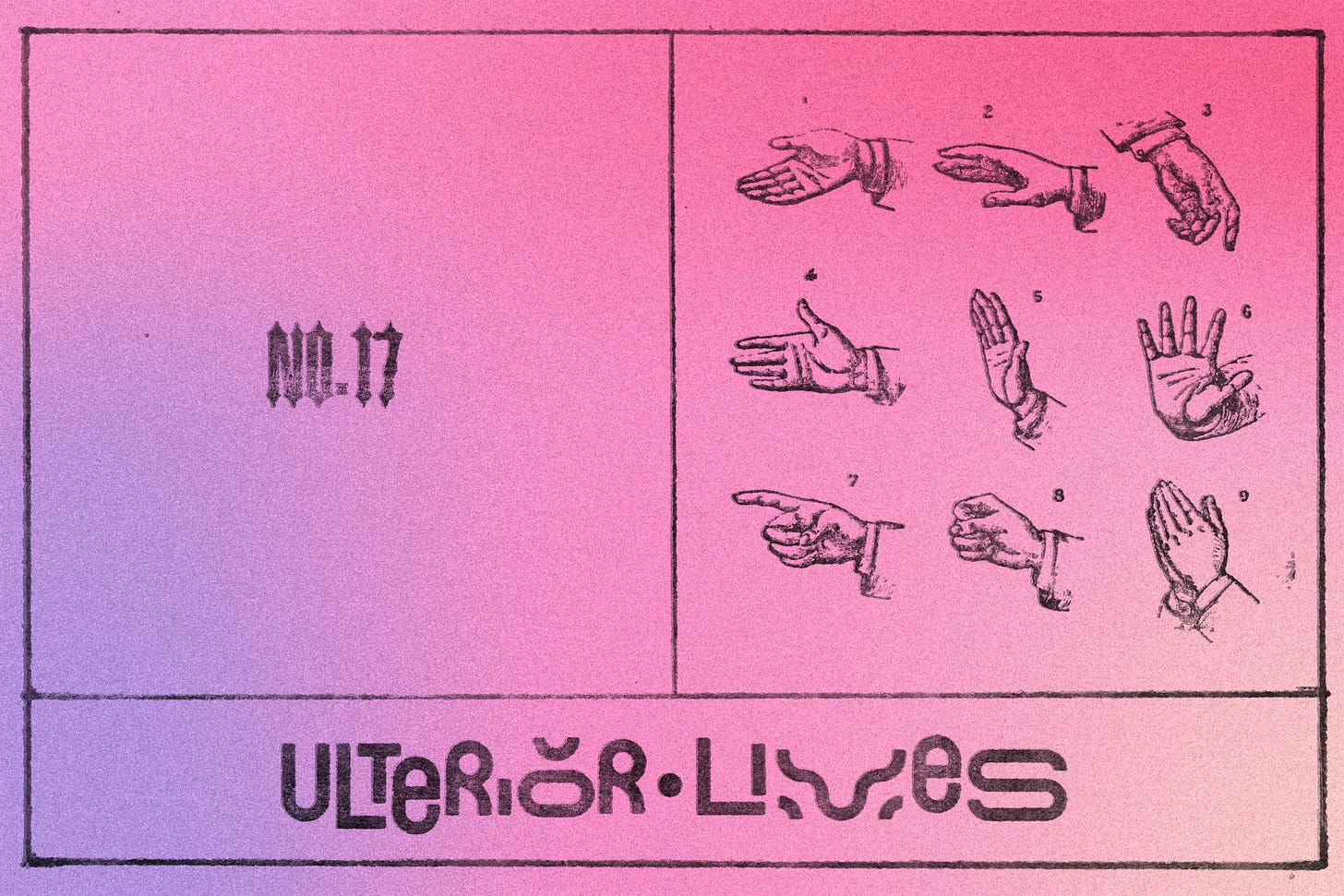Gains and losses in the first Rule of Life
Some things get lost in the first monastic Rule of Life; but the associated gains are pretty compelling.
Part 17 of our Ulterior Lives series: A Slow Research Project into The Outsider Politics of Monasticism. Read the introduction here.
“Rule 117: No one shall loiter in the oven house when the bakers are baking….”
“Rule 37: The one who dispenses sweets to the brothers at the refectory door as they go out shall recite something from the scriptures while doing so.”
“Rule 4: The brothers shall not be forced to work excessively, but a moderate labour shall incite everyone to work. Let there be peace and concord among them, and let them willingly submit to their superiors…”
The first monastic Rule was a Faustian pact.
Among those monks who chose to form small organised communities in the desert, it was perhaps inevitable that some would craft their way of life into a Rule. And of course, certain things are lost as soon as there is a rule.
The primitive hermetic form of life was improvised, unregulated by institutional scaffolding, There were no masters, no chain of command. There was not even a common liturgy. I have described it as a kind of eccentric and perhaps accidental anarchist commune of faith. In the Rule, this pattern gives way to a managed form of life, characterised by what was, in fairness, a rather gentle kind of hierarchy and law. There is much to be said regarding what is lost in a pact of this sort, but the gains are compelling.
The fact that there was an oven house that one was not permitted to loiter in is already a good sign. The serious hermits commonly sustained themselves on a diet of raw vegetables, on the days when they ate. Life under the Pachomian Rule was far less severe than the Wild East of the hermits. By comparison, they lived more comfortably and ate better. The prohibition against loitering by the bakery was the price you paid to eat bread. The superior would not drive the monks too hard, if the monks would recognise the rule of the superior. And the punishments proscribed by the Rule were far less severe than the penances the hermits subjected themselves to. Degrees of ascetic demand were set by a moderate code, and as a result, the monks were not compelled to the extremities of squalor that was common among the hermits. Their well-regulated common life made living in the desert easier. They created a simple collaborative structure of healthcare to meet one another’s needs. Large numbers of people made the choice to ‘flee the world’ and enlist. Many in poverty found themselves able to live economically viable lives in the monastery, even at the downturn of an aging Roman empire.
With pooled resources and common discipline, communities living under the Rule were able to practice hospitality to strangers in a way that was beyond the scope of the wild hermits. Travelling monks and clerics were to be welcomed with foot washing. More still, “seculars” and women were also to be given hospitality, albeit in well-separated quarters, since “it would be wicked to drive them away.” And there were dispensations for those wishing to visit friends, relations and co-parents in the nearby nunnery. This is a marked difference to the hermits as they’re described in the Sayings of the Desert Fathers, who tended to shun any interaction with the opposite sex. More still there are safeguarding rules threatening “very severe punishment” for anyone regarded as a “trifler among children.” And so the Rule enlarged the structures of care and diligence that meant the desert indeed be a more welcoming and diverse space.
The Rule of Pachomius also makes numerous references to books and literacy. Reading was part of the rhythm and the illiterate monks were to be taught by the literate. This, again, was a striking note of change. Among the hermits, having books lying around might well be considered a failure to give all you had to the poor and to follow Christ. In the monastery, a handful of books might be shared by many monks, and in a sense they didn’t actually belong to anyone. Most highly regarded, of course, was the memorisation of Biblical texts. As the Rule states: “There should be no one whatever in the monastery who does not learn to read and does not memorise something of the scriptures. One should learn at least the New Testament and the Psalter.”
Stepping back to take in the view, one might find oneself speaking of healthcare, education, work, housing, culture, security and so on. I’m a little wary of this, since that kind of litany is, in the modern mind, synonymous with the state: a comparison that might not work so well in both directions. We should remember that this culture of care and of healthy relational village economics was not the invention of Pachomius, but was something people were already doing in various ways, to which he gave structure, form, authority and stability. It isn’t difficult to see why the pact was made. Once that first brief Rule was a document, it was easily copied and passed on from one community to the next. And so the Rule of Pachomius became the prototype of every monastic Rule of Life: of a pattern that continues to this day.
Breaking the cycle of power
The eccentric St Paul of the Cross, who took peculiar delight in his own “nothingness,” opens a loophole in our embattled political imagination.







